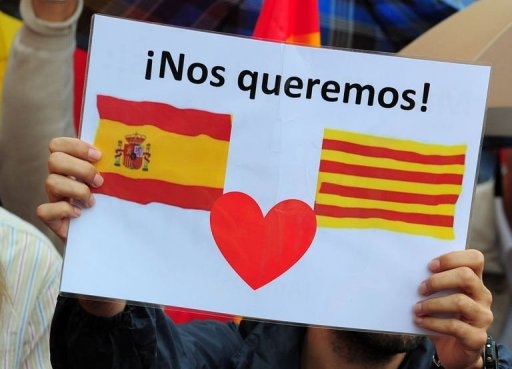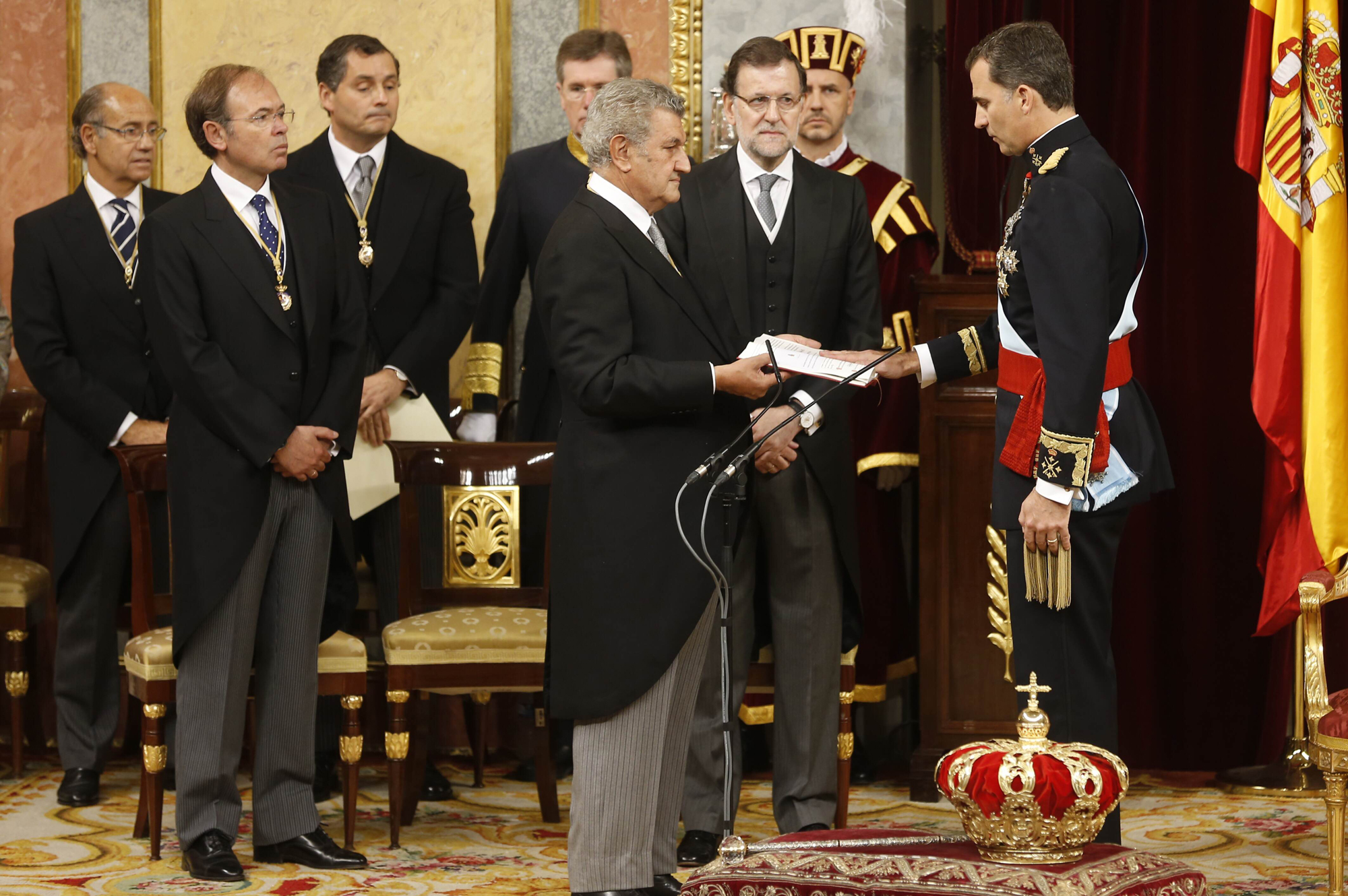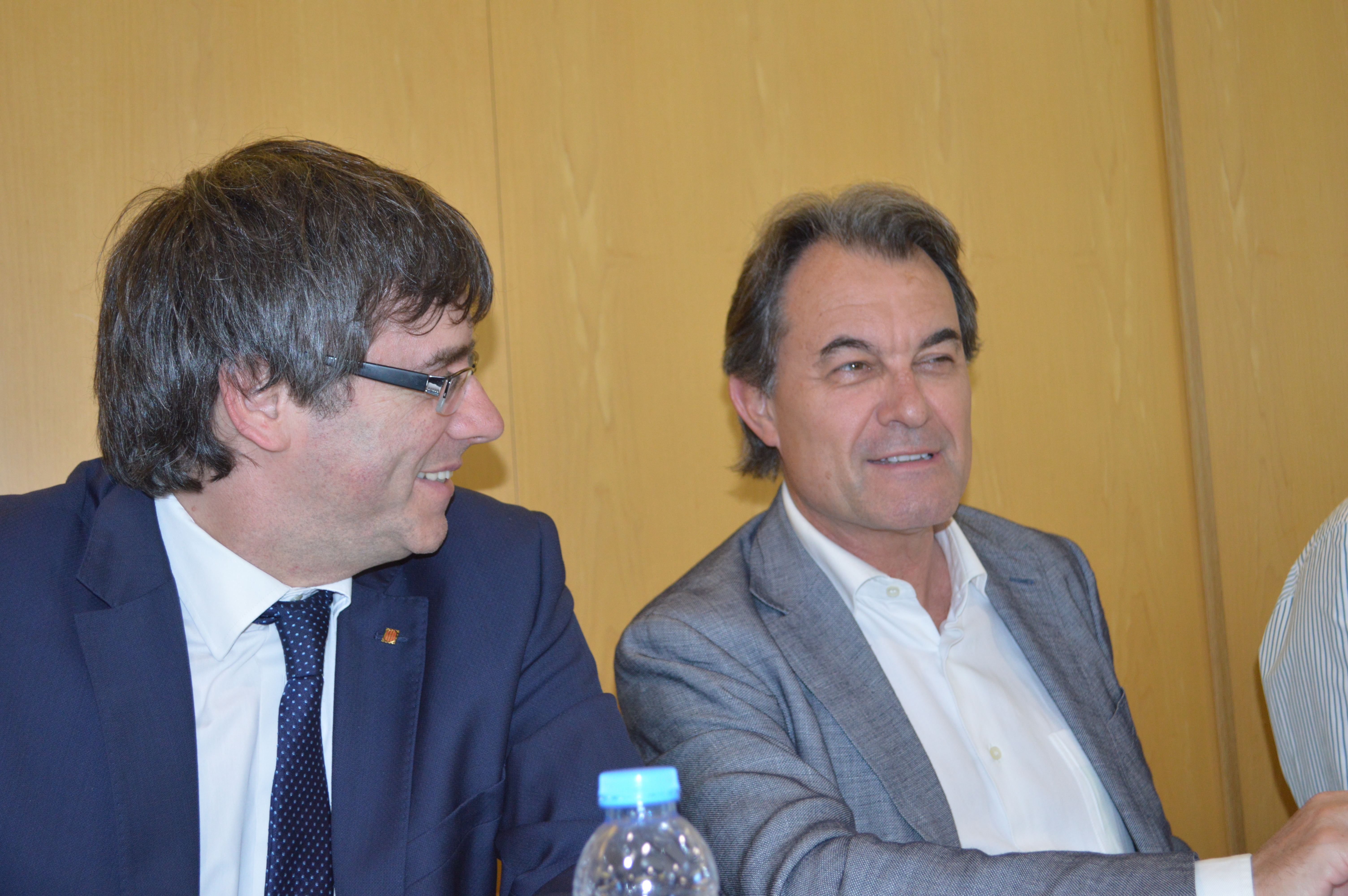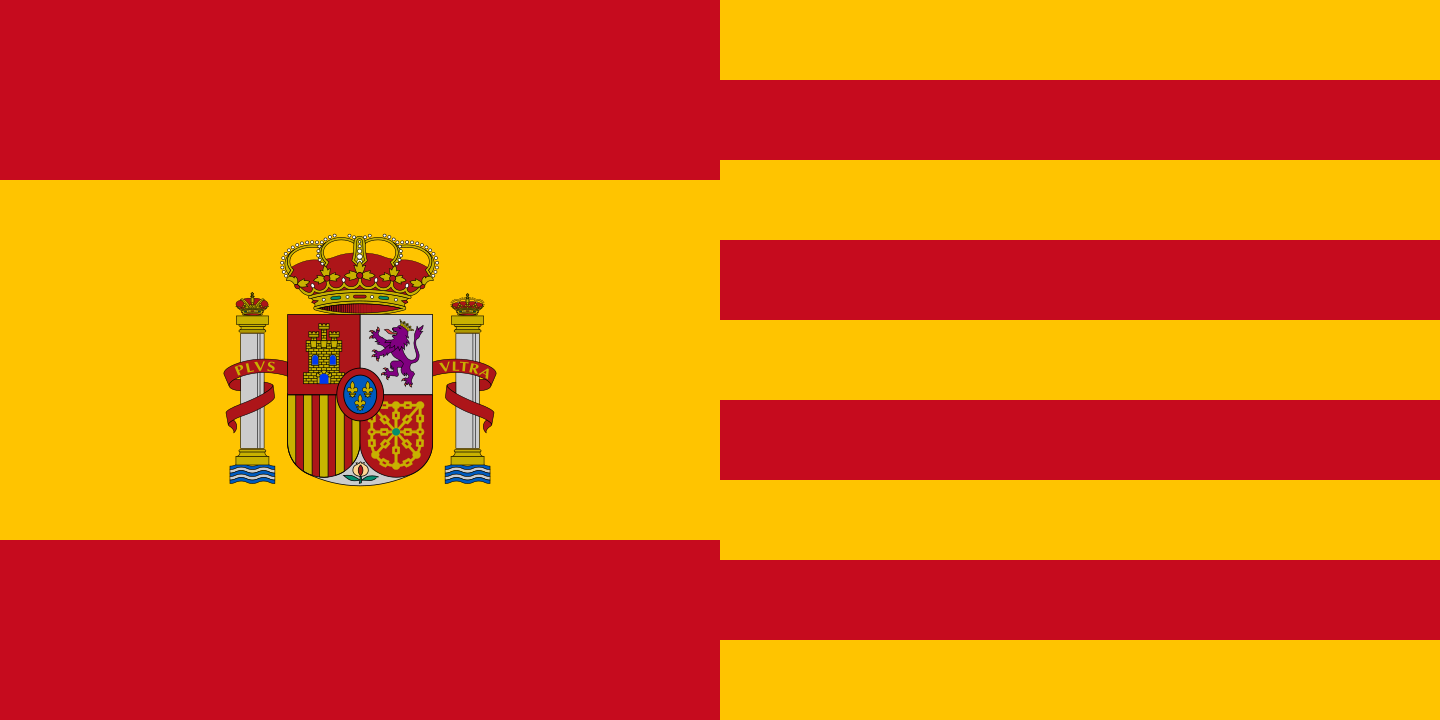The Constitutional Game of Catalonia

Historically, the Catalan regional-nationalist feeling emerged in the second half of the 19th century in conjunction with the first industrialization of a monarchy (although the question of Catalan national identity dates back further), which until that epoch, productively speaking was far behind its European neighbors, as it was based mainly upon agricultural activities. In 1901, the most prominent Catalan politicians (and at the same time for many, the quintessence of the political turncoat), Francisco Cambó and Enric Prat de La Riba, co-founded and led the “Lliga Regionalista” (the Regionalist League of Catalonia), claiming a modern reproduction of the Aragon-Catalan crown.
Catalonia enjoyed a form of administrative independence for two decades, until September 1923, year of the advent of the military junta, under the leadership of the Prime Minister Don Miguel Primo de Rivera y Orbaneja, who suppressed in 1925 the local privileges of the regional entities. Despite the defenestration of Primo de Rivera in January of the year 1930 by King Alfonso XIII of Spain, the entire institutional establishment collapsed, dragging the country, a few years later, into the Spanish Civil War July 1936. The war had counterposed the Republican forces and its militias, which were based mainly in Catalonia and the nationalists commanded by the General Don Francisco Franco. As the outcome of the victory upon Republicans, Franco carried out a severe repression of all forms of autonomy in Catalonia, the use of the Catalan language and culture became strictly forbidden. The long silence upon independence began to collapse in the late 1960s when the improvement of the economic conditions of the region and the new mass tourism made Barcelona and its region, the center of the renewal as well as the heart of the modern Spanish industrialization.
The coronation ceremony for King Felipe VI of Spain. Image credit: Flickr/La MoncloaDecember 29, 1978, three years after the death of Don Francisco Franco, thus after a period called “democratic transition," the new constitution was signed by all parties present in the political “palette." The various parties were “Union de Centro Democrático (UCD)," “Pacte Democratic per Catalunya," “Alianza Popular (AP)," "Partido Socialista Obrero Español (PSOE),” and the Catalan Communists through their “Partit Socialista Unificat de Catalunya-Viu (PSUC-viu)." By introducing several national communities and pulling the trigger at the beginning of the process of regionalization, brought Catalonia to a prosperous moment that culminated in the hosting of the 1992 Olympic Games in Barcelona.
A new millennium, therefore new challenges and provocations expected for the Generalitat. In spite of its status as an “Autonomous Community” and of “Historical Region” within the Kingdom of Spain, in September 2005, the Parliament of Catalonia approved the definition of Catalonia as a “nation” in the preamble of the Statute of Autonomy. The legal answer to that gesture was given by the Constitutional Tribunal, which ruled in 2010, the identification of Catalonia as an autonomous nation as unconstitutional. Nevertheless, it escalated further between nationalists and independentists, when in 2012, the Generalitat, in accordance to its President Artur Mas, decided to announce a consultative vote over the secession from Spain, which after many months of negotiations was stopped by the Constitutional Tribunal in November 2014.
In 2015, an independent coalition formed by “Junts pel Sí” (United for Yes) won the Catalan election, which convened in June 2017, through the President of the Generalitat, Carles Puigdemont, to schedule a new referendum for October 1, 2017. September 6, 2017, 72 deputies of Junts pel Sí, Candidatura d'Unitat Popular (CUP), and Convergència Democràtica de Catalunya (CDC), voted in favor of a law which would lay the ground for the referendum called “Ley del referéndum de autodeterminación vinculante sobre la independencia de Cataluña." Anyway, the day after the Constitutional Court suspended this law, the Superior Court of Justice of Catalonia ordered the National Police and the local police to seize all materials related to the referendum and to arrest 14 functionaries of the Catalan Government and its related agencies in connection with the referendum, on crimes of sedition. Spain hasn't seen this high level of domestic tension since the end of the Civil War.
The former presidents of the Generalitat of Catalonia, Carles Puigdemont and Artur Mas. Image credit: Flickr/Convèrgencia Democrática de Catalunya
October 1, 2017, Catalans were called upon by the Government and by the Parliament of Catalonia, to express their right to vote over the secession from the Kingdom of Spain. The Generalitat claims that the referendum was legal as per the will of the local legislative power, however, the constitution is clear upon this legal cavil. The legitimate authority to announce a referendum on the question of independence of one of the “Comunidades autónomas de España” (the autonomous communities of Spain) is an exclusive prerogative of both national legislative and executive powers. It seems that the Generalitat missed a few democratic pillars on its path to autonomy, despite likely intending to represent the Catalan people.
The two laws, which were voted for by the Catalan Parliament upon the transformation of the status of autonomy for the announcement of the referendum, were voted for by the parliament without the majority of two-thirds. Thus, without reaching a quorum and avoiding the agreement of the “Consell de Garanties Estatutàries" (the local supreme court), which regulates the modification over the status of the region and controls the legality of the laws approved by the autonomous community. It's apparent how the government handled the referendum day because the use of force was pointless and above all, counter-productive, provoking a reaction not only by independentists but also by people neutral to the question of a referendum.
Nonetheless, I believe it's right that the Spanish government should restore legal order as not to face an immediate possible collapse of the democratic system, and Spain has already tested in its multi-centennial history what this means. Shortly following a vote in favor of establishing an independent republic by the Catalan parliament, Spain's prime minister, Mariano Rajoy, was permitted by the Senate to impose direct rule and dismiss the Catalan regional president, Carles Puigdemont. The Spanish prime minister's cabinet has called for regional elections to occur on December 21. The historical crisis could generate a real danger for all of Europe and the European Union, which at present confronts a profoundly challenging period, and therefore cannot permit the aforementioned menace. The wind of secession blows tenaciously across Europe, passing through Alto-Adige in northeastern Italy and Corsica in France, ergo, during this acutely peculiar moment, Europe should stand united and not jeopardize itself.
Spanish-Catalan hybrid flag. Image credit: Wikimedia Commons/Hogweard










